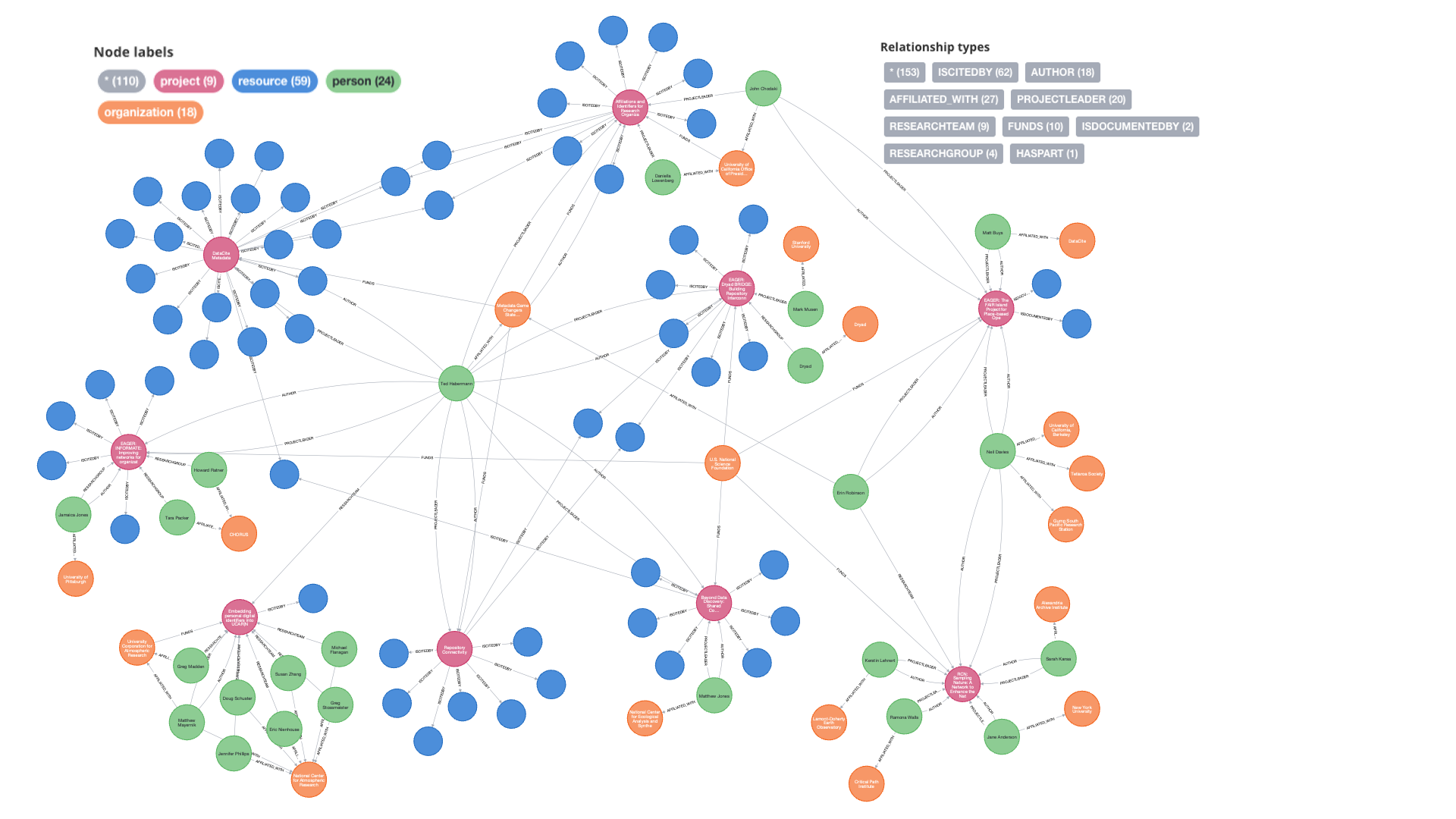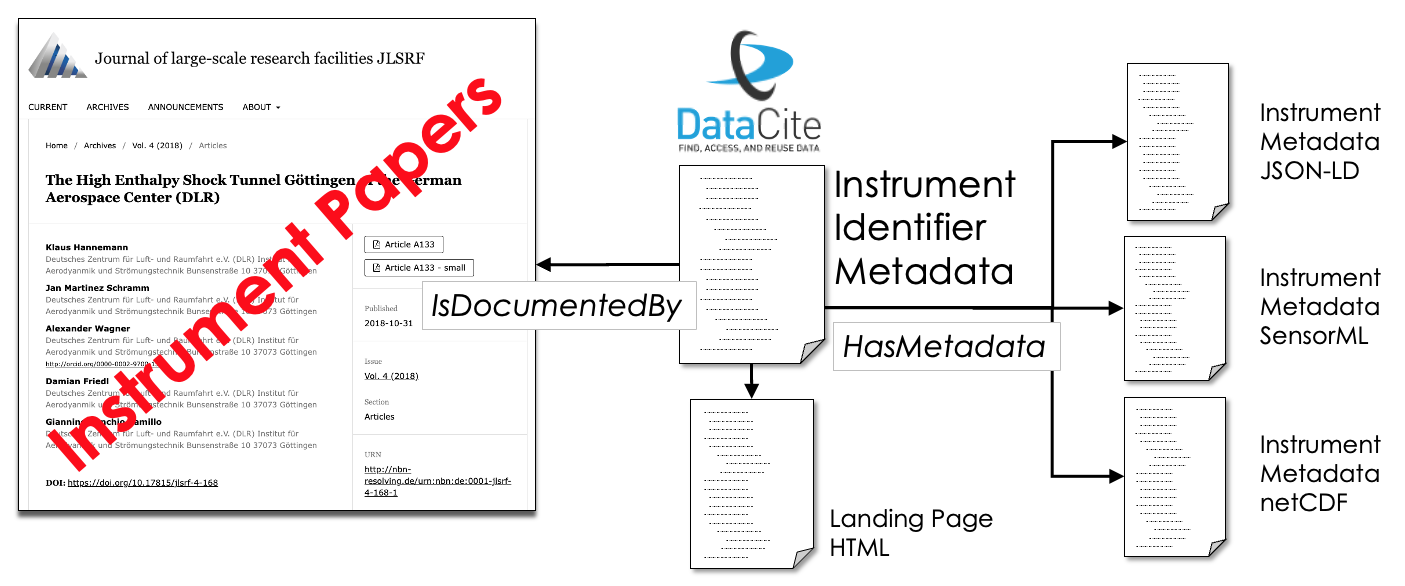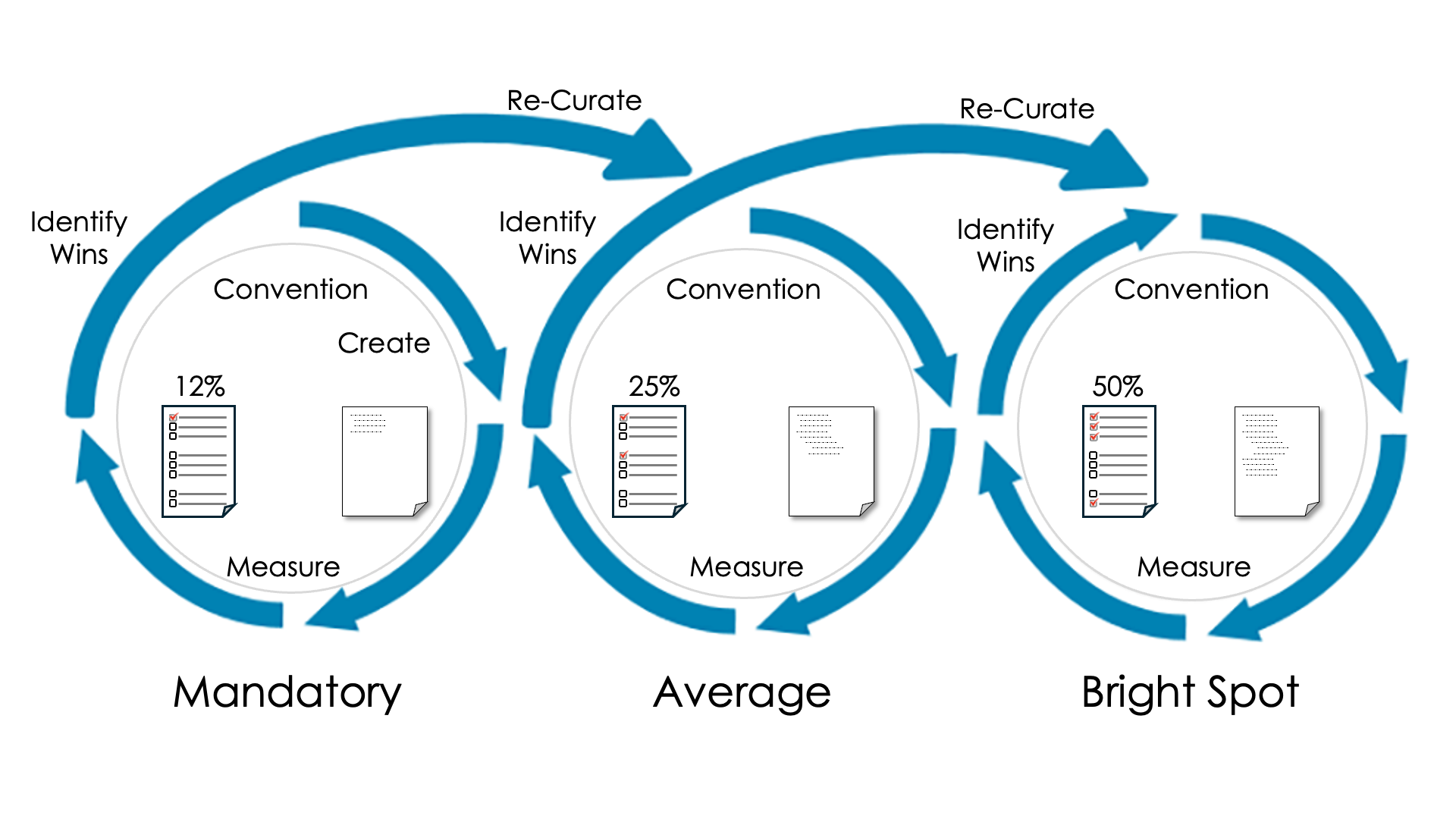
The University of Bath Research Data Archive has added ORCIDs and RORs to their metadata. They were already a brightSpot among Universities at DataCite. Now they are even brighter!

The University of Bath Research Data Archive has added ORCIDs and RORs to their metadata. They were already a brightSpot among Universities at DataCite. Now they are even brighter!

Comparison of content from the global research infrastructure retrieved from CHORUS and the NSF Public Access Repository indicates that using current infrastructure effectively could significantly increase PAR content and, subsequently, our understanding of the impact of NSF funding across many domains.

Version 4.5 of the DataCite Metadata Schema\ includes several changes supporting the identification and description of instruments. Several DataCite members were describing instruments in DataCite metadata before this capability was introduced and others are beginning to do it now. These existing efforts can inform the development of community conventions and help the broader community understand how to use instrument metadata effectively.

“Project” is being added to the DataCite ResourceTypeGeneral vocabulary in the next release. Many DataCite members are already describing projects with DataCite metadata. Establishing a baseline is a step towards establishing community guidelines and examples of good ideas for how projects might be used.

Instruments can now be identified and connected to other resources using the DataCite metadata schema. Instruments are behind every set of scientific observations so this is a big step towards improved science.

Universities with the most complete FAIR DataCite metadata are identified using a community convention for FAIR DataCite metadata that support findability with text and identifiers, connections and contacts.

Funder metadata is becoming more important as the global research infrastructure is engaged as a tool for quantifying impact of funders on research results and as interest in open science increases. Using acronyms in funder names makes it difficult to find identifiers and make the connections that are needed to realize benefits.

Metadata Game Changers and the INFORMATE Project had the opportunity to present some of our recent work during the recent culminating conference to showcase the outcomes, coalition-building efforts, and ongoing work stemming from the 2023 Year of Open Science (YOS). Some highlights are described here and a recording of the talk is also available.

The CHORUS Dashboard provides visualizations and a variety of reports from the Global Research Infrastructure for Federal agencies and other users. The INFORMATE project focuses on three of the CHORUS Reports: All, Author Affiliation and Dataset. The goal of the first phase of the project is to understand the contents of the CHORUS reports and the data collection and processing that bring the data to the reports, i.e. the CHORUS Data Journey.

::::: {#block-0510d12464991b845e5f .sqs-block .html-block .sqs-block-html block-type=“2” border-radii=“{"topLeft":{"unit":"px","value":0.0},"topRight":{"unit":"px","value":0.0},"bottomLeft":{"unit":"px","value":0.0},"bottomRight":{"unit":"px","value":0.0}}”} It is hard to believe that we are closing in on the last few days of 2023.